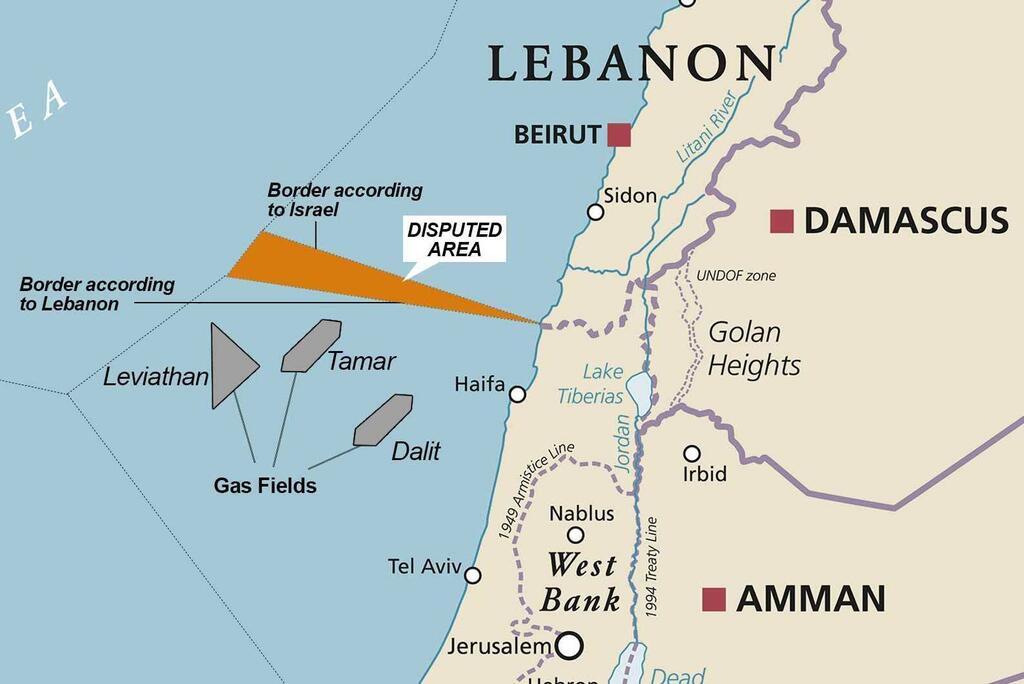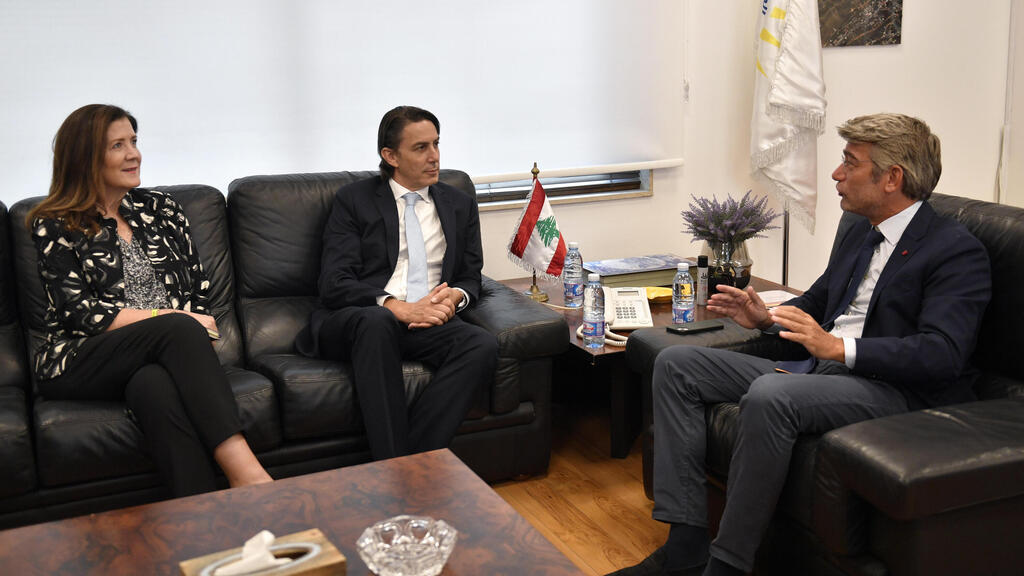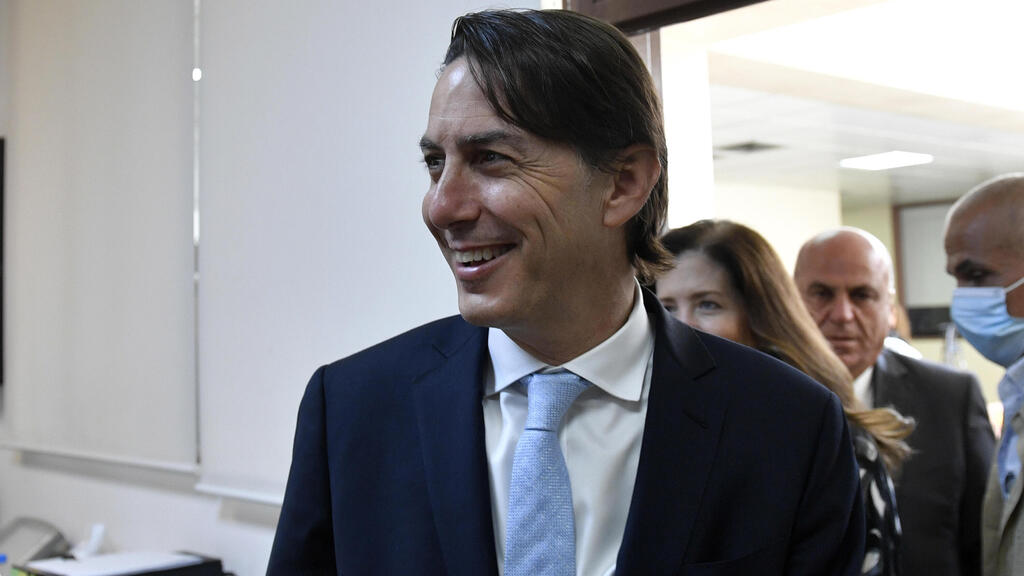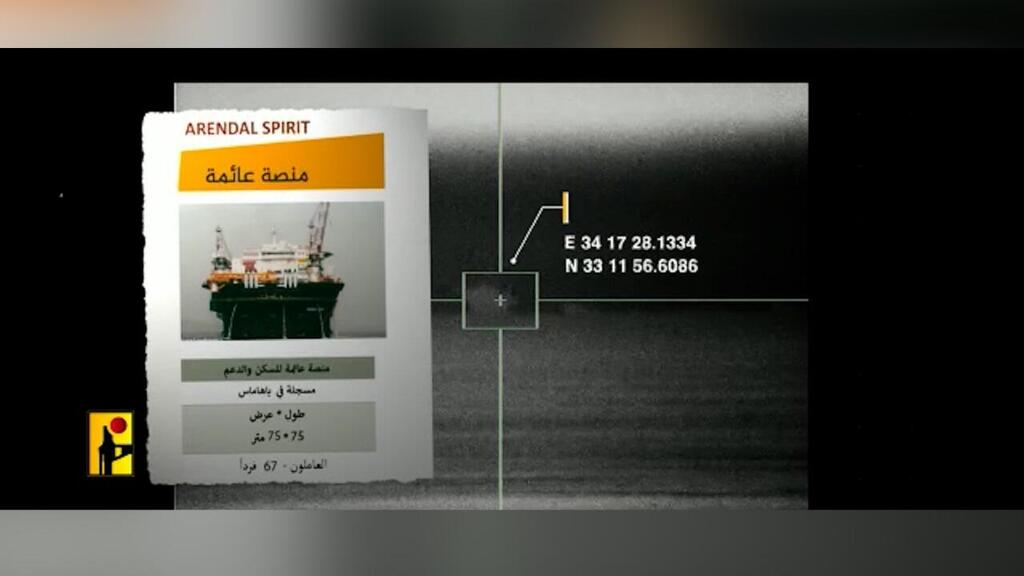United States Envoy for Energy Affairs Amos Hochstein is well aware of the minefield that is the Lebanese government: entangled governing branches, Iran-backed Hezbollah, and parliament members whose loyalty is polarized.
Nonetheless, the envoy, who is currently in Beirut to mediate talks between Israel and Lebanon on the maritime border dispute, optimistic that a compromise can be reached by the end of the summer, before the gas fields in the Mediterranean Sea near the Lebanese coast become operational.
Talks to resolve the dispute have been ongoing since October 2020. Meanwhile, six rounds of elections have taken place in Beirut, reflecting their array of domestic crises.
The current round of talks began with Hochstein and U.S. Ambassador to Lebanon Dorothy Shea appealing to pro-government officials - those who want to see through an indirect but final agreement with Israel.
These individuals include General Security Chief Abbas Ibrahim, Energy Minister Walid Fayyad, and Armed Forces Commander Joseph Aoun. Despite sharing the same last name, Joseph Aoun is not related to current Lebanon President Michel Aoun, but is a likely candidate to replace him in that role next year, making him a prominent figure in Lebanon's political echelon.
4 View gallery


A map showing the territorial maritime dispute between Israel and Lebanon
(Photo: Shutterstock)
With impressive patience, Hochstein refuted the rumors that Israel was planning to begin drilling in the area of the dispute with the Lebanese cooperation. He also emphasized that there is no intention of splitting up the disputed gas fields between Israel and Lebanon.
Hochstein appears to have managed to convince the Lebanese officials. All three of them announced that they would support the new proposal, even if it will be based on a plan created in the offices of the Israeli National Security Council.
The second phase of current talks included a meeting at the presidential palace in in Baabda, east of Beirut. In attendance were President Aoun, Prime Minister Najib Mikati, and Speaker of the Parliament Nabih Berri. The takeaway from the meeting was that the future proposal would be approved, even if it means Berri makes several adjustments meant to cool Israel's ambitions.
4 View gallery


Lebanese Energy Minister Walid Fayad (R) meets with US Senior Advisor for Energy Security Amos Hochstein (C) and U.S. Ambassador to Lebanon Dorothy Shea (L) in Beirut on Sunday
(Photo: EPA)
Throughout his visit, Hochstein - who always tries to draw attention away from his Jewish-American identity - updated Israel on his advances. He revealed that he intends to see the agreement through by September, intending to pay an additional visit to Beirut, while leaving the Lebanese government to deal with its domestic matters for the time bei
It is important to emphasize that solving the maritime border dispute is an especially urgent matter to Lebanon, given the country's financial woes that are worsening by the day.
Right as Hochstein was arriving for his visit, Hezbollah published a minute-long video of Israeli barges near the disputed gas rigs, allegedly shot by a drone. Hezbollah leader Hassan Nasrallah in his latest speech made it clear the terror group has nothing to do with the negotiations and that it will continue to be a defender of Lebanon's sovereignty. He warned that if Lebanon would be deprived of its rights to the gas fields, the organization would act.
Hochstein is expected to return for in September for another round of talks, and Hezbollah is deeply troubled by his optimism, as well as by the support he has managed to gain from the the heads of the civilian government in Lebanon.
Even Foreign Minister Abdallah Bou Habib highlighted Hezbollah's isolation in the talks, adding the organization's threats to bomb the gas fields if Israel does not back down do not represent the official Lebanese stance.
The bottom line is that if we accept Hochstein's generous offer, we can indeed allow ourselves to be optimistic for once.



